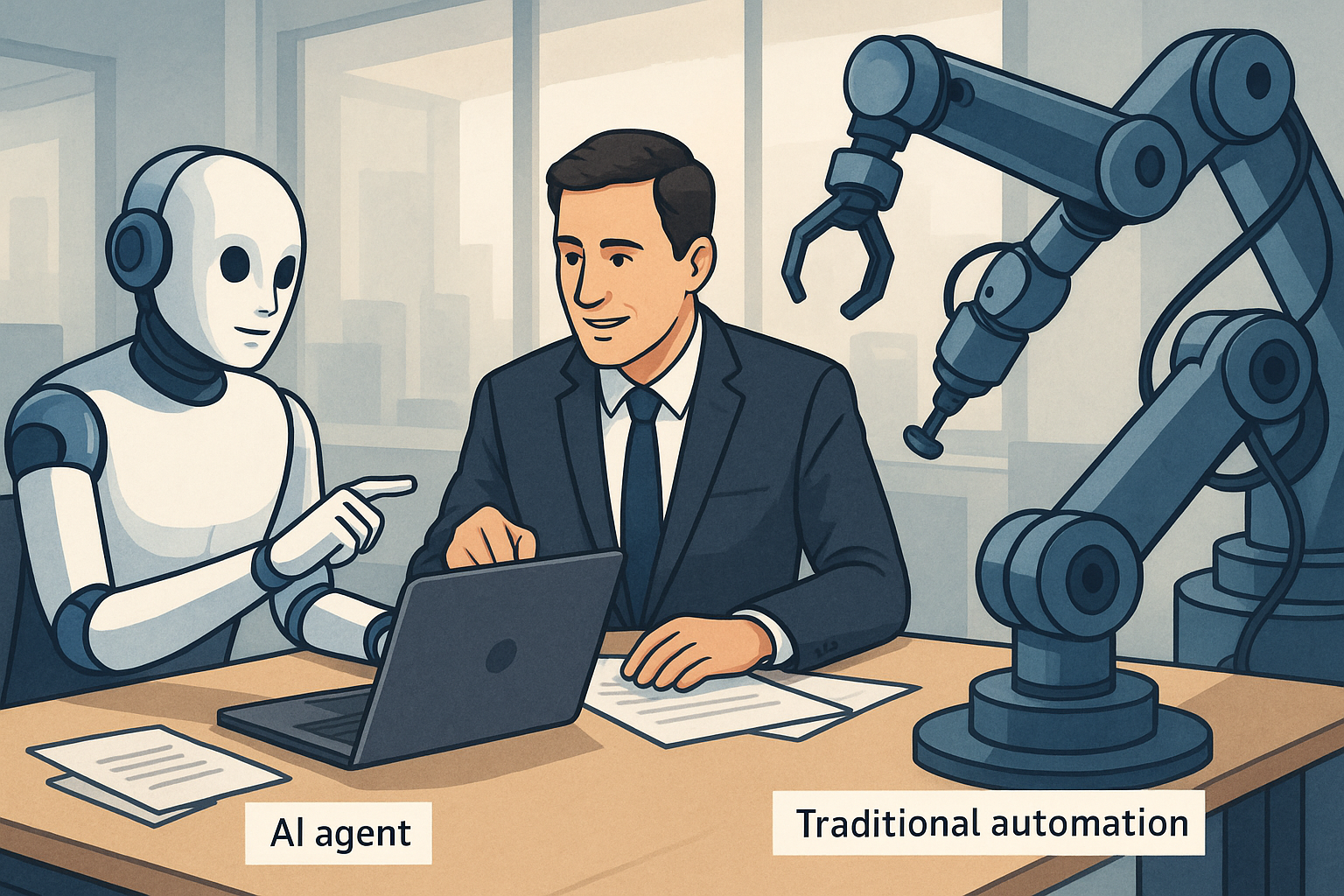AI Agents vs. Traditional Automation: What's Right for Your Business?

Introduction
Business leaders and digital consultants are faced with a pivotal choice: invest in AI agents or stick with traditional automation? With AI advancing rapidly and automation tools evolving, understanding the nuanced benefits and limitations of each can unlock better process efficiency, smarter workflows, and strategic competitive advantage.
The Basics: Defining AI Agents and Traditional Automation
AI Agents:
- Software entities capable of autonomous decision-making
- Can learn from data, adapt to new scenarios, and interact with users or other systems
- Examples: AI-powered customer service chatbots, intelligent scheduling assistants, procurement agents
Traditional Automation:
- Rule-based systems designed for repetitive tasks
- Rely on predefined scripts, triggers, and workflow rules
- Examples: Robotic Process Automation (RPA), data transfer bots, invoice handling scripts
Key Differences & Decision Factors
1. Intelligence & Adaptability
- AI agents bring contextual awareness and can navigate exceptions, making them suited for dynamic, unpredictable tasks.
- Traditional automation is reliable for fixed, repetitive processes but struggles with ambiguity or exceptions.
2. Implementation & Maintenance
- Traditional automation typically offers faster deployment, lower upfront costs, and well-understood maintenance.
- AI agents require investment in training, data management, and ongoing learning but may reduce long-term manual oversight.
3. Use Cases: Where Each Excels
Traditional Automation Shines In:
- Payroll processing
- Data entry
- Routine compliance checks
AI Agents Deliver Value In:
- Customer support with contextual responses
- Dynamic supply chain optimization
- Intelligent lead qualification and routing
4. Integration & Scalability
- Traditional automation tools tend to integrate smoothly with legacy systems and are easy to scale across identical processes.
- AI agents excel at scaling insights and automating processes where inputs and outcomes may change frequently.
5. ROI and Future-Proofing
- Traditional automation yields quick wins in cost and time savings for stable, high-volume tasks.
- AI agents position your business for future growth, intelligent decision-making, and deeper insights as AI technology improves.
Real-World Example: Customer Service Transformation
A global e-commerce brand started with automated ticket categorization using RPA and rule-based systems. As customer queries grew complex, they switched to AI agents that could understand natural language, pull relevant order data, and even make shipping decisions. Result: 30% faster resolution times and higher satisfaction scores.
Making the Right Choice for Your Enterprise
Consider:
- Complexity and variability of your processes
- Technology readiness and data quality
- Desire for adaptive capabilities versus stability
- Cost structure and ROI time horizon
For many businesses, the best approach combines both: start with automation for core stability, then layer in AI agents for strategic differentiation and growth.
Conclusion: Next Steps for Decision-Makers
AI agents and traditional automation are not adversaries—they're complementary tools. Assess your operations honestly, and choose the right blend to drive productivity, resilience, and innovation. Ready to audit your processes? Start with a targeted workflow analysis and see where adaptive intelligence could unlock value.